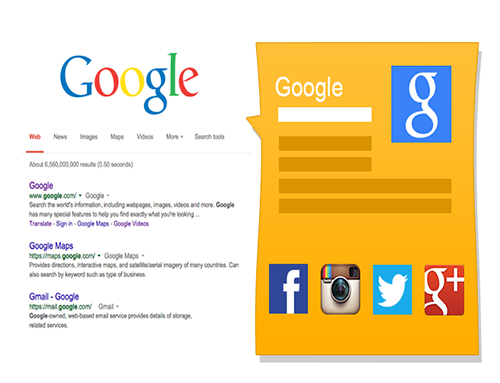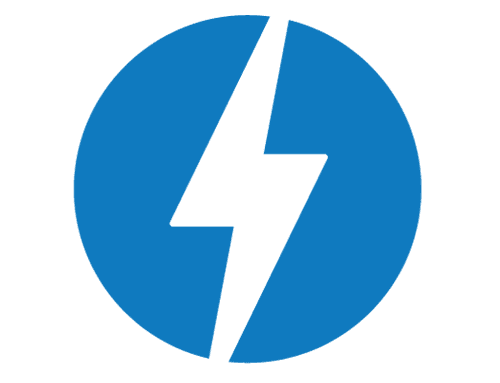What is SEO, how does it work and why do I need it?.
SEO stands for ‘search engine optimisation’ and in simple terms, it is the process of making your site more appealing to search engines such as Google, to increase your website’s visibility to the most relevant people.
What is SEO – When asking the question ‘what is SEO’, it is important to understand how search engines work. Search engines don’t choose which web pages they list in a random order; they put them in an order that they reasonably believe have the best at the top. For a search engine, they know that they’re only going to get people coming to use their site if those searching on it believe they are going to get sent to high quality websites.
The general public will not want to use a search engine that sends them to a 1998 website that won’t load on their mobile devices and contains no relevant information. They want to use a search engine that saves them time by taking them to the best websites of the ones they’re looking for, and/or answers their search query.
However, there are over 1.7 billion websites, and not even the biggest and more powerful company has time to manually check every website they list to see which ones they think are the best.
How do search engines determine where to list your website?
Search engines carry out three key functions to determine how to rank your website:
- Search engines have small bots, or ‘crawlers’, that scan websites around the world. They thoroughly scan all web pages, subpages, content and sections – absolutely everything on each website. Crawling then finds hyperlinks within the website that refer to other websites and by following these links, the bots can find new web pages to crawl.
- Once the bots have crawled the data on a webpage, they index it. This index is the equivalent of an online catalogue of all the websites in the world. It is regularly updated as the bots find new content.
- Generating results. When a search engine user submits a search query, for example ‘accountancy services near Southampton’, the search engine then creates a list of results by checking the query against all of the websites recorded in their index. Using their own algorithm, the search engine creates an ordered list with what they believe are the best and most relevant results at the top. In this instance a search engine should display only those offering accountancy services in the Southampton area, with the most current, easiest to use and best quality results at the top. I say should because no system is perfect, although the search engine algorithms are sophisticated in ensuring the most relevant results.
What is the search engine algorithm?
Here in lies the issue, they don’t tell you! We know it is a unique formula to each search engine and something of a trademark therefore it’s super-secret stuff.
However, they do give you the vaguest of vague ideas. These are the key ranking factors:
- How relevant the content on the web page is said to be to the search query.
- Strength of the backlinks. Links from other websites to your website – and how relevant they are to the web page in question.
- The quality of the content structure and how well it is optimised for the search engine and reader to scan.
- The web page loading speed. A bad loading speed gives the web page viewer a worse quality experience. Therefore a slow loading speed will reduce a web page’s search engine ranking.
- Usability and accessibility. How easy the website is to use and access will help to determine the user experience and ranking.
- Mobile optimisation and/or responsive design. Over half of all traffic is from mobile devices these days, so search engines will ‘mark-up’ websites that are able to cope with the demand for a good user experience on the move.
- Social signals. The force of social media is a strong one. Linking your website to social media and ensure that people regularly come from social to your website and share your page on social media gives the impression of a current web page, of interest in general.
All of these factors together add up to a complex algorithm and a fine line to walk in order to maximise your chances of ranking highly on search engines. This will maximise the visibility of your business to those looking for what you offer.
Google and SEO
Google are overwhelmingly the most commonly used search engine, by a large margin. 92% of all search engine use is with Google and so when writing for search engines, it’s really worth focusing on them (although the others should not be ignored.) Other search engines out there include Bing, Baidu, Yandex, Ask, DuckDuckGo, AOR and Dogpile.
Google have an established history in search engine optimisation and are infamous for regularly making updates to their algorithm to keep website creators and writers on their toes. They have given their algorithms cute names such as Panda, Penguin and Hummingbird, and some of their bigger algorithm updates have had some big name victims.
An update in 2013 where Google sought to clamp down on ‘unnatural link building’ sent Interflora to the bottom of the pile for key search terms to their business. There is still no confirmation on what specifically caused this, but it demonstrated how an SEO penalty can make a really deep impact to your business and online presence.
Sketchy SEO practices
Unnatural link building is just one tactic that is known as ‘Black Hat SEO practices’ and are seriously sketchy. Search engines are wise to many of the tricks now, and their updates seek to weed those using black hat SEO out, as well as discourage others from using it.
Marketing agencies and professionals looking to use these practices should be avoided, as any ‘quick win’ will potentially be quickly snatched away when Google or other search engines cotton on to the trick you are using.
Here are the key ‘black hat SEO’ practices to watch out for.
- Unnatural link building. This often involves paying other websites for links to your website and is strongly frowned upon. Originally, search engine algorithms only really counted the number of links, but quality is now of equal importance.
- Keyword stuffing. This is where a web page is filled with the most relevant key words for the searches you want to appear in, even if they’re not in context or relevant. Some people have even been known to write them in the same colour as the background so they’re not even visible when you view the website, except to the search engines.
- This is where the content that is viewed by the reader, is different to the content that is viewed by the search engine. That means that those viewing a web page in their browser would potentially see content completely irrelevant to their search query.
- Doorway pages. They affect the index of a search engine by inserting results for specific phrases but then send visitors to a different page, that wouldn’t necessarily be of interest.
- Programmatically generated content. This is automatically generated content within the web page that is filled with the ‘right’ keywords but isn’t actually relevant, or is just bad quality content for the reader.
It might seem unfair that you can’t do whatever you can to get your website to the top of a very large pile of websites in your area. However, the point of these practices being penalised is to ensure that web searchers are seeing the best quality content available for their search query. On the search engine’s part, they’re just trying to give their ‘customers’ the best possible experience.
And the truth is, if your website is aiming to get the right kind of visitors and to get them to convert, you shouldn’t need them. Getting people to your website for them to leave again without taking any interest, because the content is of poor quality or relevant, is false economy. You might be getting a higher number of website visitors, but not visitors that are necessarily going to be interested in your business.
Staying on side in SEO
None of this means that you cannot adapt your website to appeal to search engines, but in a positive way. Instead of ‘tricking people’ into visiting your website with underhand tactics, you can simply make sure that your website has the most relevant and quality content for the search queries you’re trying to drive traffic from. This is called ‘white hat SEO’ – the opposite of black hat SEO.
Search engines would encourage this anyway and are prepared to ‘reward’ those that do white hat SEO with a higher ranking for the most relevant result. As a result, you will get the ‘right’ visitors – those most likely to be actively looking for your product or service and therefore, more likely to become your customer through your online presence.
Here are some of the key ‘white hat SEO’ practices known to improve search engine rankings.
- Using metatags. Meta tags are snippets of text that describe a page’s content to search engines. Unlike tags, which you might see on the side of blogs you have seen, meta tags don’t appear on a web page itself, but only in the web page’s source code.Meta tag information help tell search engines what a web page is about in the same way that a blurb does for a book, and most Content Management Systems enable you to fill in this information quite easily. For a relatively short amount of work you can signpost your website to search engines to make it easier for them to rank you well.
- Strategic use of keywords. I know I literally just said that stuffing keywords into your website is a no-no, but the trick is to use the keywords organically in your content, in context and without putting it in a hundred times.For example, if you were looking to rank highly for ‘marketing agencies in Surrey’ and ‘SEO content’ you would put a sentence along the lines of ‘We’re one of the leading marketing agencies in Surrey for SEO content and website design’ and continue along those lines with relevant and interest content containing those words regularly but not crammed in.You shouldn’t put ‘If you’re looking for marketing agencies in Surrey, we’re the best of the marketing agencies in Surrey for SEO content and when it comes to marketing agencies in Surrey you should come to us for SEO Content as we’re the best at SEO Content.’It reads horribly and it is pretty obvious that you’re writing with the sole purpose of getting ranked on search engines. However, search engines do not appreciate the lack of quality when it comes to content.
- Long, in-depth, and good quality content. Many websites now have a blog and fill it up regularly with content. However, with more people looking for the answer to questions online – ‘I’ll Google it’ – providing longer pieces of content that satisfies the question and even takes it further, increases visit length and gives you a greater chance to insert multiple relevant keywords into the content, without keyword stuffing.This argues for a more professional content marketing approach with an ongoing plan following some keyword research. Looking at key phrases and key words that you want to rank highly for, but you can be competitive in i.e. you aren’t competing with a company 50 times your size. This content is also something you’re able to share on social media, and create ‘social signals’, which can be one of the key ranking factors.Examples of longer and more in-depth content might be longer articles and blogs, whitepapers, online magazines, infographics, studies and technical papers. Which content you use would depend on your industry and what is topical at that time.
- Creating a link network. Again, I’d mentioned link building in a negative context above, but this was for paid and bad quality websites with the sole purpose of getting a link at any cost. A search engine algorithm doesn’t just take note of the number of links you have, but also the quality and relevance of those links.Getting external links to your website means ensuring you have quality content that another website want to link to. This might be the longer and more in-depth content mentioned as above, it could be a directory entry on a relevant trade website, it could be that if you work alongside a company and they mention you on their website, you might ask (nicely) for them to link to your website.Putting links on your website to other websites is also a good SEO tactic. This might include referencing statistics used on blogs to the source, or putting links to suppliers or companies you’ve worked with.Internal links are also important – linking pages within your website to each other to show they are relevant to each other. External links and internal links combined create a kind of spider’s web of link building, establishing your website as connected and reputable.
- Guest posting. This incorporates both link building and creating quality content, which is often referred to as off page SEO. Not all content needs to stay on your website to work towards your search engine optimisation. As well as generating an inbound link to your website, writing guest posts is also great for raising awareness of you and your business.Off page SEO should be as much of a part of your content marketing strategy as on page SEO is.
- Ensuring the website works on all devices. A good website will have a mobile version or responsive design so that it can be seen on mobile devices.
- Create XML sitemaps. A sitemap is an XML file that lists the URLs on a website. This enables search engines such as Google to crawl a website more efficiently and to find website URLs and web pages that might be isolated from the rest of the site’s content.XML Sitemaps are important for SEO because they make it much easier for search engines such as Google to find the web pages within your website as well as the home page. This is important because search engines rank web pages generally not just the actual website as a whole. You might find that a web page within your website ranks really well on a search engine even if your website home page doesn’t. This might be particularly relevant for set products or specialist services. There’s really no negative aspect of having an XML sitemap when it comes to improving your search engine ranking.
How do I know where I’m ranking on search engines at the moment?
You might think you’re ranking really high on search engines because you see your website every time you ‘Google yourself’. However, Google personalises your search engine results to fit to your location and what your web page viewing history has been for the last 180 days. So you’ll be getting a different result to other people, and people that haven’t seen your website before.
To get an impartial result there are lots of tools to show you where you’re ranking more generally. A good quality marketing professional agency will be able to show you where you’re ranking for what, and regularly measure your results as the search engine’s update their search engine algorithm.
In addition, you can use Google Analytics to get an idea of where your traffic is coming from. While it is important to know where you are ranking, it’s equally important to find out if this is leading to any actual traffic.
Google Analytics has a report on traffic acquisition. Firstly, it will tell you how much of your traffic is coming from organic search, as opposed to directly, or through social media, paid ads or email marketing. Then, it can let you know which search engines are sending traffic to your website i.e. Google, Bing etc.
From there, it can give you an idea of the quality of the traffic, by showing you how long people stayed on the website, what the bounce rate is, how many pages they go on to view, and how many of them convert.
Google Analytics is a very handy tool for this purpose and more when it comes to SEO. Having said that, you are no longer to access the same amount of ‘keyword data’ that you used to be able to, since Google stopped the use of keyword data.
Can I do my own SEO?
The answer to that really depends on four factors; the access you have to your website, your level of technical skill, the amount of time you have available, and the number of contacts you have across the industry.
More recently made websites are built using a Content Management System, such as WordPress (the most commonly used CMS). The advantage of that is that anyone with a log in and enough skill and knowledge is able to edit the web page content and some aspects of the design. However, in the past many websites were ‘hard coded’, which means that only those with that access and the greater technical knowledge needed is able to edit the website.
If this is the case, you’re looking at getting a specialist in to work on your website, although looking at moving your website to a CMS system might be a good investment. It will save you money moving forward as it will enable you to make smaller changes and add content yourself.
If your website is on a CMS and you’re able to use it you would be able to do some aspects of SEO yourself. You might be able to do some content marketing and add on page SEO content on a blog for example. Most CMS have the ability to add meta tags yourself and even give you tips on the best length and content you should include.
However, you would need to be able to set aside the time for this, in terms of research as well as actual writing. Keyword research to make sure that you’re including keywords that will positively impact your search engine ranking is important as well as the regular updating of your website. Also, remember that this content needs to be of high quality.
Be honest with yourself on your own writing ability or ask someone you trust for their opinion. It could be that your specialist knowledge in your industry makes you a good choice for the writing. It could be that for the sake of quality and time, it’s better to use a professional writer.
When it comes to off page SEO, if you have numerous contacts across the industry that would be happy for you to contribute to their blog, work together on a case study or link to your page as a supplier or contact, then this will be a valuable asset. If you don’t, then finding an agency with outreach content marketing experience or even PR might be a good idea.
When should I use an SEO professional?
You might find when you reach a certain point or certain size that bringing in an agency or professional is a good investment. More technical work such as an XML sitemap might be beyond your ability, as might moving the website to a CMS to future proof your online presence.
Content marketing, when done properly, can take an amount of time you don’t have available. A professional will also have much more knowledge of how search engines work, the key ranking factors, and the ability to stay up to date more. If you have a content marketing professional or agency with experience in your industry they might have contacts that you don’t.
All of this will mean that you rank higher for the most relevant results with much less time spent on your side. As you grow, or in order to grow, the technical expertise and time saved will be invaluable. That frees you up to manage the areas that you specialise in, and manage the day to day aspects of your business.
So what is SEO?
In short, SEO is an essential part of any marketing strategy, but a lot more complicated than three little letters. Whereas, before, it might have been a matter of getting as many keywords in as you can and links to all and any website, things are more sophisticated now.
On and off page SEO, keyword research, content marketing, link building with external and internal links, designing for mobile devices and more technical work on your xml sitemap, all come together in one marketing form. Without SEO you are missing an absolutely huge captive market. Google, for example, were visited over 62 billion times in 2019, and they process over 3.5 billion search queries a day.
It’s important to remember that with SEO, you’re not having to compete internationally. Many local SMEs are only looking to reach those in the area local to them. So, they can realistically achieve a high ranking within that area, and only for the search query or queries that they want to, in order to only get those that are likely to be interested in their business and/or content. There are plenty of affordable options for SMEs looking for organic traffic either by doing some inhouse SEO or using agencies experienced in SEO, aimed specifically at small and medium sized businesses.
It’s good to bear in mind that SEO has another positive side effect. In addition to making a contribution to your search engine rankings and increasing organic traffic, it also works to build a stronger online presence for your business and a more professional image. All of the white hat SEO practices work to ensure a better quality website for when a website visitor does click through to your website, as well as helping you build and develop more relationships within your industry.





